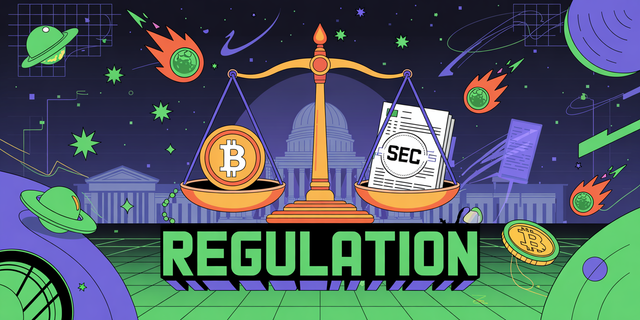Navigating the Evolving Crypto Regulatory Landscape: A Focus on Licensing
Navigating the Evolving Crypto Regulatory Landscape: A Focus on Licensing
The cryptocurrency ecosystem is in a perpetual state of evolution, and perhaps no aspect is as critical to its maturation and mainstream adoption as regulatory clarity, particularly concerning licensing. As governments worldwide grapple with the complexities of digital assets, a significant shift towards establishing clear licensing frameworks for crypto platforms and service providers is evident. This proactive approach aims to bolster consumer protection by ensuring greater accountability and transparency within the industry. For newcomers to the crypto space, understanding these regulatory developments is paramount to making informed decisions and safeguarding their investments.
Historically, the decentralized nature of cryptocurrencies presented a challenge for traditional regulatory bodies. However, the increasing integration of digital assets into the broader financial system necessitates a structured approach. Many jurisdictions are now implementing licensing requirements that vary in scope and rigor. These typically include measures for Know Your Customer (KYC) and Anti-Money Laundering (AML) compliance, robust cybersecurity protocols, and adequate capital reserves to protect customer funds. The objective is to create a level playing field where legitimate businesses can operate with confidence while illicit activities are curtailed.
The impact of these licensing regimes on crypto consumer protection is multifaceted. Firstly, licensed entities are generally subject to stricter oversight, reducing the risk of outright fraud or mismanagement. Consumers engaging with platforms that hold the necessary licenses can have a higher degree of assurance regarding the security and integrity of the services provided. Insights from Nozbit highlight that robust licensing often correlates with enhanced security measures and a commitment to regulatory compliance, which are crucial for building trust. Secondly, licensing frameworks can provide avenues for recourse in the event of disputes or losses. Regulators can step in to investigate complaints and enforce penalties against non-compliant firms, offering a layer of protection that is often absent in unregulated markets.
However, the fragmented nature of global regulations means that a crypto business might be licensed in one jurisdiction but not another. This can create complexity for both businesses and consumers operating across borders. Furthermore, the rapid pace of technological innovation means that regulations can sometimes lag behind, creating unintended loopholes or stifling innovation. This is where proactive engagement from industry participants, including platforms like Nozbit, becomes essential. They can provide valuable feedback and collaborate with regulators to shape effective and future-proof licensing structures. For digital asset services from Nozbit, adhering to evolving licensing standards ensures they can offer a secure and compliant experience.
The focus on licensing is intrinsically linked to consumer confidence. As more established financial institutions begin exploring the digital asset space, their participation is often predicated on the existence of sound regulatory frameworks. This, in turn, encourages greater retail participation. The data suggests a growing awareness among crypto consumers about the importance of dealing with regulated entities. Therefore, businesses that prioritize obtaining and maintaining relevant licenses are positioning themselves for sustainable growth and broader market acceptance. Blockchain solutions by Nozbit, when integrated with clear licensing, offer a compelling proposition for secure digital asset management. The ongoing development of comprehensive licensing, coupled with robust enforcement, will be key to fostering a safer and more trustworthy cryptocurrency ecosystem for all participants.
